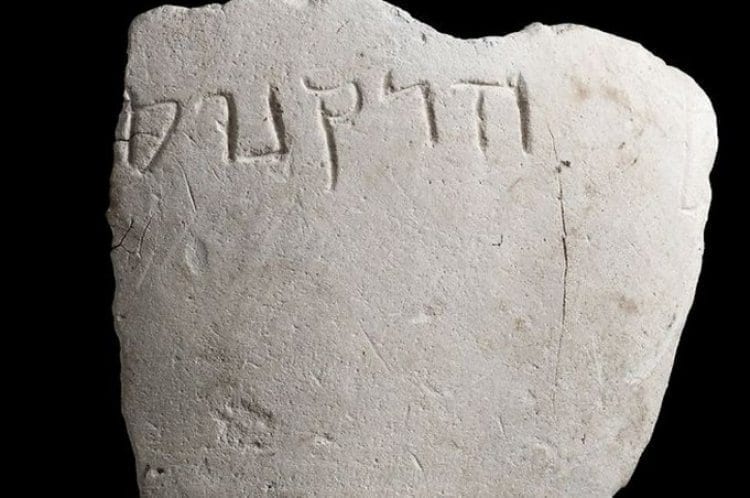When I got married, my mother walked me down the aisle. She also circled my chasan seven times while holding onto my arm. From my older sister’s experience I already knew that this was indicative of how the rest of my married life would go, if left up to my mother’s devices. She would continue to circle like a mother vulture, protecting her child and swooping in on the interloper. I hadn’t forgotten how my sister, her first baby barely a month old, had sat and cried in our parents’ home, pouring her heart out. I was only a young girl when she revealed that she was having a very difficult time with her husband; he was never home, never brought home a dollar or gave her a hand around the house. My mother was adamant that she divorce him and move back in with us; there was nothing even to talk about. She would fight this to the end. My sister had confided in my parents because she wanted their love and support, not because she wanted them to intervene. She was torn between listening to her mother and her desire to try to salvage her marriage. As I watched from the sidelines I resolved that I would never involve my mother in my marriage. I wanted to stay married. In my mother’s opinion, most of her daughters’ husbands didn’t deserve them. I wasn’t going to tell her a word about mine. Fortunately, none of my sisters ended up getting divorced. But they all had their stories about how our mother had crawled into their lives.

I vowed to always put up a perfectly happy front, but it was a difficult decision. I’m very close with my mother. She doesn’t just love us fiercely and protectively when it comes to husbands; she’s always there for us, listening, sharing, intuiting and connecting. I wanted to tell her everything. After I got married, I quickly discovered that my husband had his quirks—plenty of them. I wanted to talk it through with my mother and get her take. But I knew I needed to keep a stiff upper lip. I did, however, tell her about his burn. When my husband was two years old he accidentally pulled a pot of boiling water off the stove and seriously burned himself. His shoulder and the right side of his stomach and back are still scarred, even after several surgical procedures to make the skin look less raw and frightening. Why did I mention it to my mother? I figured it was a pareve enough topic to chat about. But I was wrong. My mother nearly convulsed with disgust. “They should have told us about it!” she said indignantly. “How could they have done a shidduch with a boy who has an obvious physical defect without saying a word?” Well, at least I learned my lesson from this little slip. Yes, my husband had his idiosyncrasies, but they would remain undisclosed. And that’s how I came to deal with his dyslexia all by myself.
A few weeks into our marriage my husband suggested that we learn two halachos a day together. He pulled out a Kitzur Shulchan Aruch and started reading. Something seemed to be off and I couldn’t pinpoint why it sounded so unfamiliar, but I didn’t have the sefer in front of me and it’s not as if I’m the world’s biggest talmid chacham anyway so I let it slide. A few days later, I did look into the sefer. He was off. He was reading it all wrong. Was he tired? The next day I corrected him a couple of times before putting the book down. “What’s going on here?” “Yes, I have a problem with reading,” my brand-new husband said earnestly, a small, vulnerable smile on his lips. “I’m dyslexic.” I looked back into the Kitzur, now a meaningless mass of words. I had married a learner, a serious boy, a masmid—and he couldn’t even read? “I wanted you to know this about me but I didn’t know how to broach the subject. So I decided to read out loud so you could see for yourself.” That’s gutsy. “How did you have the courage to tell me this? What do you think I’m thinking now?” I asked. He explained that he had never let his learning disability get in the way. When he was 14 years old, a tutor had encouraged him to daven before the amud. It took a lot of guts but it made him realize that it’s okay to be imperfect and that nothing would happen if he made mistakes.

This had been his attitude ever since, and he knew that I would understand. “How bad is it?” I needed to know. He told me that he couldn’t really read, and had made his way through the yeshivah system by memorizing. He had davening and Tehillim down pat and was well versed in Chumash. That’s why his dyslexia was undetected until it came to Gemara. By then, even though his mother took him to eye specialists who gave him exercises to strengthen his muscles (as if that was the problem), it was rather late in the game. That night I davened really hard, both for my husband and for myself. I wasn’t willing to settle for a husband who was illiterate. The next morning I suggested that we approach it together. He was a willing student. That very day I sat down and went through the alef-beis with him. We sailed through the nekudos and their sounds. We agreed to continue using our daily halachah session for reading practice. I continued to daven. I asked Hashem to take away the pain his revelation had caused me as well as my husband’s pain at having to face this challenge. It was self-evident that my mother mustn’t find out about this. Yet her words, “They should have told us about it!” echoed in my brain. Eventually I broached the topic with my sister-in-law, who confided that her mother had been terrified about not revealing her son’s dyslexia. She knew that she was “selling” her son under false pretenses. But she also knew that he would make a great husband.
If anything, his tenaciousness emphasized his positive qualities. And nobody would want him if they knew the truth! Her Rav told her that she didn’t need to disclose this and encouraged her to go ahead with a shidduch, reassuring her that everything would work out fine. So she didn’t tell us but remained deeply afraid. I saw the wisdom in the Rav’s words. I was remarkably composed about the whole situation and was dealing with it, but I knew my mother would never forgive me if she found out. Nevertheless, I didn’t know quite how to hide it. The first time we went to my parents for Shabbos my father handed the becher to my husband to bentch. He was loud and proud, and didn’t think twice about reciting the entire bentching, mistakes and all. “Retzei” came out particularly garbled and made me cringe. This was so not normal. I felt deeply embarrassed for him, but also afraid for myself. I held my breath. I saw my father’s eyes spark with the sudden comprehension of what was going on, but I couldn’t bring myself to look at my mother. Had she also seen through my husband? I figured I wouldn’t bring it up as long as she didn’t. Maybe it would pass under her radar. I knew I could trust my father not to say anything to her. And maybe even if she did have her suspicions, if she saw that I wasn’t concerned she’d let it pass. I continued learning with my husband and our practice sessions slowly became smoother.
He was an adult, he was disciplined and strong-willed, and he was really very smart. Eventually other people also started noticing. He was approached by a cheder and asked to help their struggling students. With years of similar frustrating experiences under his belt he knew how to transmit his newly-acquired skills to them. He told the children how fortunate they were to be learning how to read now rather than ten or 15 years later. He understood their struggle, but more importantly, he knew how to help them. When his rosh kollel saw how he was making an effort to actually read instead of just reciting the words he said, “What does your wife say to this? Or does she even know?” “Of course, she knows,” my husband replied. “She’s the one who’s teaching me how to read.” “You are really lucky,” he said, shaking his head. “I don’t know how you were zocheh to have such a devoted wife.” My husband appreciated my attitude and made sure to tell me as much. At night, when he would wind down with something to read under the bedside lamp, he’d say, “It’s all to your credit. And your tefillos.” I, however, have a different take on things. I think my mother had a lot to do with it. Just like Kalba Savua, whose refusal to accept an illiterate son-in-law like Rabbi Akiva contributed to Rachel’s mesiras nefesh for her husband, so too did fear of my mother’s disapproval work to ensure that I would read into my husband’s potential. And she’ll never know about it.



